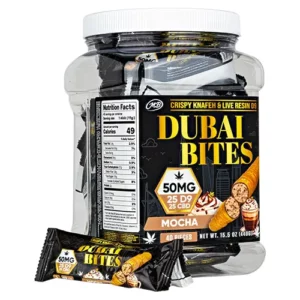Ever found yourself in a hazy situation, wondering how long that Delta 8 cart you’ve been puffing on might linger in your system? Well, you’re not alone. As Delta 8 THC continues to make waves in the cannabis community, it’s crucial to understand its staying power in our bodies. Whether you’re a casual user or a dedicated fan, knowing the ins and outs of Delta 8’s detection window can be a game-changer. So, let’s dive into the nitty-gritty of Delta 8 carts and unravel the mystery of their persistence in your system. Buckle up, because we’re about to embark on a journey through the fascinating world of cannabinoid metabolism!
Introduction to Delta 8 THC: Understanding the Basics
Definition and Overview
Alright, let’s kick things off with a crash course in Delta 8 THC. Picture this: you’re at a party, and someone hands you a vape pen, claiming it’s “like weed, but different.” That, my friends, is likely Delta 8 THC in action. But what exactly is this mysterious compound?
Delta 8 THC, or delta-8-tetrahydrocannabinol if you’re feeling fancy, is a cannabinoid found naturally in cannabis plants. It’s like the cool, laid-back cousin of the more famous Delta 9 THC. While it occurs in small amounts naturally, most Delta 8 products on the market are created by converting CBD or other cannabinoids in a lab. Pretty neat, right?
This compound has been gaining popularity for its unique effects. Users often report a milder high compared to traditional marijuana, with less anxiety and paranoia. It’s like getting the chill vibes without the intense couch-lock or munchies marathon. But don’t be fooled – Delta 8 is still psychoactive and can pack a punch, especially for newbies.
Comparison with Delta 9 THC
Now, let’s play a little game of “Spot the Difference” between Delta 8 and its more famous sibling, Delta 9 THC. These two compounds are like fraternal twins – similar in many ways, but with some key distinctions that set them apart.
First up, chemical structure. Delta 8 and Delta 9 are nearly identical, with just a tiny difference in the placement of a double bond. It’s like they’re playing musical chairs with their atoms, and Delta 8 sat down one seat over. This small change leads to some significant differences in how they interact with our bodies.
When it comes to potency, Delta 9 is the heavyweight champion. It’s known for its strong psychoactive effects, which can sometimes lead to anxiety or paranoia in some users. Delta 8, on the other hand, is often described as “Delta 9’s chill little brother.” It tends to produce a milder high, with users reporting clearer thoughts and less intense side effects.
Here’s a quick rundown of the key differences:
- Potency: Delta 9 is more potent, while Delta 8 offers a milder experience.
- Legal status: Delta 8 exists in a legal gray area in many places, while Delta 9 is more strictly regulated.
- Side effects: Delta 8 users often report fewer negative side effects like anxiety or paranoia.
- Availability: Delta 9 is more common in traditional marijuana products, while Delta 8 is often found in specially processed products.
Despite these differences, both compounds can show up on drug tests, which brings us back to our main question: how long does Delta 8 stick around? Stick with me, and we’ll dive into that next!
How Long Does Delta 8 Stay in Your System?
Overview of Detection Times
When it comes to how long delta 8 stays in your system, there’s no one-size-fits-all answer. It’s like asking how long it takes to beat a video game – it depends on a bunch of factors. But let’s break it down into some general timeframes to give you a ballpark idea:
- Urine tests: Delta 8 can typically be detected in urine for about 2-30 days after use.
- Blood tests: These bad boys can usually spot delta 8 for up to 2-3 days.
- Saliva tests: Expect delta 8 to show up in saliva tests for about 1-3 days.
- Hair follicle tests: Hold onto your hats – delta 8 can be detected in hair for up to 90 days!
Keep in mind, these are just general guidelines. Your mileage may vary depending on a whole host of factors we’ll get into later.
Metabolism Process of Delta 8 THC
The metabolism of delta 8 is similar to its cousin, delta 9 THC. Your liver is the star of the show here, using enzymes to break down delta 8 into metabolites. These metabolites are what drug tests are actually looking for, not the original delta 8 compound itself.
The half-life of delta 8 – that’s the time it takes for half of the substance to be eliminated from your body – is estimated to be around 30-60 minutes. But don’t get too excited! This doesn’t mean it’s completely out of your system that quickly. Those metabolites I mentioned? They stick around much longer.
Your body eliminates these metabolites gradually through various means, primarily urine and feces. The rate at which this happens can vary wildly from person to person. Some lucky ducks might clear it out in a few days, while others might be looking at weeks before they’re completely in the clear.
Understanding this process is crucial if you’re wondering how long delta 8 stays in your system. It’s not just about how long the effects last, but how long those pesky metabolites hang around. So, next time you’re enjoying your delta 8 cart, remember – your liver’s already planning its after-party cleanup!
Methods of Detection: Exploring Different Drug Tests
When it comes to detecting Delta 8 THC in your system, there are several methods that can be employed. Each type of drug test has its own strengths and limitations, and understanding these can help you navigate potential testing scenarios. Let’s dive into the most common drug tests used to detect Delta 8 THC.
Urine Test
The urine test is the most frequently used method for detecting Delta 8 THC. It’s cost-effective, non-invasive, and relatively easy to administer. When you consume Delta 8, your body metabolizes it into THC-COOH, which is then excreted in your urine. This metabolite can be detected for several days to weeks after use, depending on various factors like frequency of use and metabolism rate.
For occasional users, Delta 8 might be detectable in urine for 3-5 days. However, heavy users could test positive for up to 30 days or more. It’s worth noting that standard urine tests don’t typically distinguish between Delta 8 and Delta 9 THC, which means a positive result could come from either compound.
Blood Test
Blood tests are less common for Delta 8 detection but are sometimes used in specific situations, such as workplace accidents or DUI cases. These tests can detect the presence of Delta 8 THC in your bloodstream, but the detection window is much shorter compared to urine tests.
Delta 8 typically remains detectable in blood for only 1-2 days after use. However, for frequent users, it might be detectable for up to a week. Blood tests are more accurate in determining recent use, making them useful for assessing current impairment rather than past use.
Saliva Test
Saliva tests are gaining popularity due to their ease of use and ability to detect recent Delta 8 consumption. These tests are often used in roadside drug testing or workplace scenarios where immediate results are needed. The detection window for Delta 8 in saliva is relatively short, typically ranging from a few hours to 1-2 days after use.
One advantage of saliva tests is that they’re harder to tamper with compared to urine tests. However, they may not be as effective in detecting Delta 8 use beyond the immediate past. If you’re worried about a saliva test, avoiding Delta 8 use for at least 72 hours before the test is generally a safe bet.
Hair Follicle Test
Hair follicle tests are the most comprehensive but least common method for detecting Delta 8 THC. These tests can detect drug use over a much longer period, typically up to 90 days. When you consume Delta 8, trace amounts of THC metabolites are deposited into your hair follicles as your hair grows.
While hair tests are highly sensitive and can provide a long-term history of drug use, they’re also the most expensive and time-consuming to administer. It’s important to note that these tests don’t indicate current impairment or recent use, but rather a pattern of use over time.
Here’s a quick reference guide for the detection windows of different drug tests:
- Urine Test: 3-30+ days
- Blood Test: 1-7 days
- Saliva Test: A few hours to 1-2 days
- Hair Follicle Test: Up to 90 days
Understanding these different testing methods can help you make informed decisions about Delta 8 use, especially if you’re subject to drug testing. Remember, factors like metabolism, frequency of use, and dosage can all influence how long Delta 8 remains detectable in your system. When in doubt, it’s always best to err on the side of caution and allow ample time for the compound to clear your system before any potential drug test.
Factors Influencing the Duration of Delta 8 in Your System
Metabolism Rate
First up, we’ve got metabolism – the unsung hero (or villain, depending on your perspective) of Delta 8 clearance. Your metabolism is like your body’s personal cleanup crew, working tirelessly to process and eliminate substances. If you’ve got a speedy metabolism, you’re in luck! Your body will likely clear Delta 8 faster than someone with a slower metabolic rate.
But what affects metabolism? Age, genetics, and overall health all play a role. Younger folks tend to have faster metabolisms, while our metabolic rate naturally slows as we age. It’s like your body’s engine gradually downshifting over time. So, if you’re wondering why your college-aged cousin seems to bounce back quicker after using Delta 8, their revved-up metabolism might be the answer.
Body Weight and Body Fat Percentage
Next up on our list is body composition. Here’s the deal: Delta 8 THC is lipophilic, which is a fancy way of saying it loves fat. It’s like a clingy friend who doesn’t want to leave the party. The more body fat you have, the more places Delta 8 can hide out and stick around.
This means that if you’re carrying a bit more weight or have a higher body fat percentage, Delta 8 might linger in your system longer. On the flip side, if you’re leaner with less body fat, Delta 8 has fewer places to hang out, potentially leading to faster elimination. It’s not about body shaming – it’s just the science of how our bodies interact with cannabinoids.
Dosage and Frequency of Use
Frequent users might find that Delta 8 builds up in their system over time. It’s like your body’s way of saying, “Whoa, slow down, I need time to process all this!” If you’re using Delta 8 daily, it’s going to take longer to clear out compared to someone who only indulges occasionally. So, if you’re concerned about detection times, moderation is key.
Method of Consumption
Last but not least, how you consume Delta 8 can impact how long it sticks around. Different methods of consumption affect how quickly Delta 8 enters your bloodstream and how long it takes to be processed by your body. Here’s a quick rundown:
- Vaping or smoking: Fastest onset, but also clears out quicker
- Edibles: Slower to kick in, but can hang around longer due to processing through the digestive system
- Sublingual (under the tongue): Middle ground between vaping and edibles
The method you choose can make a difference in both how quickly you feel the effects and how long Delta 8 remains detectable in your system. It’s like choosing between a sprint and a marathon – each has its own timeline and impact.
Remember, these factors don’t exist in isolation. They all work together in a complex dance that determines your personal Delta 8 timeline. Understanding these influences can help you make informed decisions about your Delta 8 use, especially if you’re concerned about drug tests or other detection methods. Stay smart, stay safe, and always listen to your body!
Delta-8’s Effects on the Body and Mind
Delta-8 THC has been making waves in the cannabis community, and for good reason. This cannabinoid offers a unique experience that’s caught the attention of both recreational users and those seeking potential therapeutic benefits. Let’s dive into the effects of Delta-8 on your body and mind, exploring both the potential upsides and the risks you should be aware of.
Potential Benefits and Therapeutic Uses
Delta-8 THC has shown promise in several areas, offering a range of potential benefits that have piqued the interest of researchers and users alike. While more studies are needed to fully understand its effects, early findings and anecdotal evidence suggest some exciting possibilities:
- Anxiety Relief: Many users report feeling a sense of calm and relaxation without the intense anxiety sometimes associated with Delta-9 THC.
- Pain Management: Some individuals have found Delta-8 helpful in managing chronic pain, potentially offering an alternative to traditional pain medications.
- Appetite Stimulation: Like its cousin Delta-9, Delta-8 may help boost appetite, which could be beneficial for those undergoing treatments that suppress hunger.
- Nausea Reduction: Early research suggests Delta-8 might help alleviate nausea, making it potentially useful for those dealing with chemotherapy-induced nausea.
- Neuroprotective Properties: Some studies hint at Delta-8’s potential neuroprotective effects, which could have implications for conditions affecting the nervous system.
It’s important to note that while these potential benefits are exciting, more research is needed to fully understand Delta-8’s therapeutic potential. Always consult with a healthcare professional before using Delta-8 for any medical purpose.
Side Effects and Risks
While Delta-8 THC offers potential benefits, it’s crucial to be aware of the possible side effects and risks associated with its use. Like any substance that affects your body and mind, Delta-8 can have unwanted effects, especially if used improperly or in excess.
Some of the potential side effects of Delta-8 THC include:
- Dry mouth: Often referred to as “cottonmouth,” this is a common side effect of many cannabinoids.
- Red eyes: Similar to other forms of THC, Delta-8 can cause your eyes to appear bloodshot.
- Increased heart rate: Some users report experiencing a temporary increase in heart rate.
- Coordination issues: Delta-8 can affect your balance and coordination, so it’s important to avoid activities like driving while under its influence.
- Anxiety or paranoia: While less common than with Delta-9 THC, some users may still experience these effects, especially at higher doses.
It’s also worth noting that Delta-8 THC can show up on drug tests, which could pose risks in certain situations like employment screenings. Additionally, the legal status of Delta-8 is somewhat murky and varies by location, so it’s crucial to be aware of the laws in your area.
Lastly, because Delta-8 products are relatively new to the market, there’s a lack of long-term studies on their effects. This means we don’t yet fully understand the potential risks of prolonged use. As with any substance, moderation is key, and it’s always wise to start with lower doses to gauge your individual reaction.
Remember, while Delta-8 THC offers an intriguing middle ground between CBD and Delta-9 THC, it’s not without its risks. Stay informed, use responsibly, and always prioritize your health and well-being.
Methods to Expedite the Elimination of Delta 8 from your System
Hydration: Importance of Water Intake
Staying hydrated is crucial when you’re trying to expedite the elimination of Delta 8 from your system. Water is like your body’s natural detox drink, helping to flush out toxins and metabolites. But don’t just chug gallons of water mindlessly – that can be dangerous!
Instead, aim to drink about 8-10 glasses of water per day. This steady intake helps your kidneys function optimally, increasing urine production and potentially speeding up the excretion of Delta 8 metabolites. Pro tip: Add a squeeze of lemon to your water. It not only makes it taste better but also gives your metabolism a little boost.
Diet: High Fiber Foods and Detoxification
Your diet plays a significant role in how quickly your body can process and eliminate Delta 8. High-fiber foods are your best friends here. They help keep your digestive system moving, which can aid in the faster elimination of toxins, including Delta 8 metabolites.
Here’s a quick list of fiber-rich foods to incorporate into your diet:
- Leafy greens (spinach, kale, collard greens)
- Whole grains (oats, quinoa, brown rice)
- Legumes (beans, lentils, chickpeas)
- Fruits (apples, pears, berries)
Additionally, foods rich in antioxidants can support your body’s natural detoxification processes. Think colorful fruits and veggies, green tea, and even dark chocolate (in moderation, of course).
Physical Activity: Impact on Metabolism
Exercise is a fantastic way to boost your metabolism and potentially speed up the elimination of Delta 8 from your system. When you work out, you increase blood flow throughout your body, which can help distribute and metabolize Delta 8 more quickly.
Cardio exercises like running, cycling, or swimming are particularly effective. They get your heart pumping and increase your metabolism. But don’t discount strength training – building muscle can boost your overall metabolic rate, which may help in the long run.
Remember, the key is consistency. You don’t need to become a gym rat overnight, but aim for at least 30 minutes of moderate exercise most days of the week. Not only will this potentially help you detox Delta 8 faster, but it’s also great for your overall health and wellbeing.
By combining these methods – staying hydrated, eating a fiber-rich diet, and getting regular exercise – you’re giving your body the best chance to eliminate Delta 8 as quickly as possible. Just remember, everyone’s body is different, so be patient with yourself and listen to your body throughout the process.
Navigating the Risk: Delta-8 THC and Drug Testing
Let’s face it, folks – the world of drug testing can be a real minefield when you’re dabbling with Delta-8 THC. Whether you’re a casual user or a devoted enthusiast, understanding the risks associated with drug testing is crucial. So, let’s dive into this thorny issue and arm you with the knowledge you need to navigate these tricky waters.
Risk Assessment for Different Scenarios (Employment, Sports, etc.)
When it comes to Delta-8 THC and drug testing, the stakes can vary wildly depending on your situation. Here’s a quick rundown of some common scenarios:
- Employment: Many employers conduct pre-employment or random drug screenings. The delta 8 urine detection time can be a real concern here, as standard tests often can’t distinguish between Delta-8 and its more infamous cousin, Delta-9 THC.
- Sports: Athletes, listen up! Most sports organizations have strict anti-doping policies. Even if you’re just taking a one hit of delta-8, drug test results could potentially derail your career.
- Legal Situations: If you’re on probation or involved in a custody battle, drug testing might be part of your reality. In these cases, any THC in your system could have serious consequences.
- Healthcare: Some medical procedures or insurance policies might require drug testing. While Delta-8 is legal in many places, it could still trigger a positive result.
The harsh truth is that in most of these scenarios, a positive test result for THC (regardless of whether it’s from Delta-8 or Delta-9) could lead to serious repercussions. According to a study by the National Drug Court Institute, standard drug tests can’t differentiate between various forms of THC, making Delta-8 users vulnerable to false positives for marijuana use.
Tips for Anticipating and Handling Drug Tests
Now that we’ve covered the risks, let’s talk strategy. Here are some tips to help you anticipate and handle drug tests when you’re a Delta-8 user:
- Know Your Rights: Familiarize yourself with local laws and workplace policies. In some states, employers can’t discriminate based on off-duty cannabis use, but this isn’t universal.
- Timing is Everything: If you know a test is coming up, stop using Delta-8 products as soon as possible. Remember, the delta 8 urine detection time can vary, but it’s generally detectable for 3-30 days depending on usage.
- Be Honest (If Possible): If you’re in a situation where you can be upfront about your Delta-8 use, consider doing so. Some employers or organizations might be understanding, especially if you use it for medicinal purposes.
- Consider Alternative Products: If you’re using Delta-8 for therapeutic reasons, explore CBD-only products that don’t contain THC. These are less likely to trigger a positive drug test.
- Stay Hydrated and Healthy: While there’s no foolproof way to speed up THC elimination, maintaining good overall health can help your body process it more efficiently.
Tips for Responsible Use of Delta-8 Products
Delta-8 might be milder than its cousin Delta-9, but it can still pack a punch. Begin with a small dose and gradually increase it until you find your sweet spot. Trust me, it’s way better to ease into it than to accidentally overdo it and end up glued to your couch for hours.
Here’s a quick list of dos and don’ts to keep in mind:
- DO research the brand and product before buying
- DON’T mix Delta-8 with alcohol or other substances
- DO store your products safely, away from children and pets
- DON’T drive or operate heavy machinery after consuming Delta-8
Be mindful of when you’re using Delta-8, especially if you have important commitments coming up. Remember, it can stay in your system for a while, so plan accordingly. If you’ve got a drug test on the horizon, it’s best to abstain for a good chunk of time beforehand.
Everyone reacts differently to Delta-8, so pay attention to how it affects you. If you’re experiencing any negative side effects, don’t hesitate to cut back or stop using it altogether. Your well-being should always come first, no matter how awesome the product might seem.
By following these tips, you’ll be well on your way to enjoying Delta-8 responsibly. Stay safe, have fun, and remember – knowledge is power when it comes to cannabis products!
Conclusion: The Continued Importance of Understanding How Long Delta-8 Stays in Your System
As we wrap up this deep dive into the world of Delta-8 THC, it’s crucial to emphasize the ongoing significance of being well-informed about how long this compound lingers in your system. Knowledge is power, folks, and in this case, it’s your best defense against potential pitfalls.
Remember, Delta-8 isn’t a one-size-fits-all situation. Your body is as unique as your taste in music, and factors like metabolism, usage frequency, and even your love for cheeseburgers can all play a role in how long Delta-8 sticks around. By staying educated, you’re not just protecting yourself – you’re also contributing to a more responsible and mature cannabis culture.
So, whether you’re a casual user, a medical patient, or just Delta-8 curious, keep this info in your back pocket. Stay informed, stay safe, and most importantly, stay true to yourself. The world of cannabinoids is evolving at breakneck speed, and staying on top of the latest research is key. After all, in the words of a wise person (probably), “The only constant in life is change – and the need to know how long Delta-8 stays in your system.”










